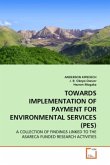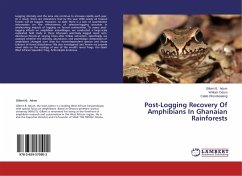Repeated failure of traditional conservation instruments in addressing environmental degradation problems have pushed analysts and practitioners to think of market solutions to the problem. Payment for environmental services (PES) is one such market mechanism which has been proposed. The logic is that, by internalising what has hitherto been regarded external to the market (vis-à-vis ecosystem services), natural resources managers are likely to find a balance between the production of goods and services. Effective institutional arrangements are essential if the full potentials of the markets are to be harnessed. This book thus, attempts to develop a potential institutional arrangement for PES implementation in Ghana, drawing lessons from the institutional arrangements of some successful PES schemes in Asia, Africa, and Latin America. The introductory chapters analyses the various institutional arrangements of the case studies. The concluding chapters attempt to compare the policy, legal and institutional framework within which the institutional arrangements were established against those in Ghana. A potential institutional structure is then developed.
Bitte wählen Sie Ihr Anliegen aus.
Rechnungen
Retourenschein anfordern
Bestellstatus
Storno





![Renewable Energy [R]evolution via Institutional Analysis in Azerbaijan Renewable Energy [R]evolution via Institutional Analysis in Azerbaijan](https://bilder.buecher.de/produkte/36/36325/36325190n.jpg)


